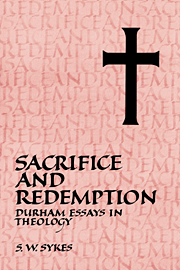Book contents
8 - On eucharistic sacrifice in the middle ages
Published online by Cambridge University Press: 10 March 2010
Summary
Sir, this is sad stuff. (Dr Johnson, passim.)
‘What will you make of the Articles?’ That, Newman tells us in Part iv of his Apologia, was the question put to him by friends when the Tracts for the Times were calling the Church of England back to what was seen by the authors of the Tracts as its neglected Catholic inheritance. That Church had also inherited the Thirty-Nine Articles, and Article xxxi was one of those that seemed to call for an explanation: ‘The sacrifices of Masses in which it was commonly said that the priests did offer Christ for the quick and the dead, to have remission of pain or guilt, were blasphemous fables and dangerous deceits.’ Newman's exegesis of it in Tract xc amounted to claiming that it did no more than attack superstitious and simoniacal abuses condemned by Rome also ([Newman] 1842). It is notorious that Tract xc aroused violent disagreement, but such views were already regarded with abhorrence by those who opposed the Tractarians. Dr Arnold wrote in 1841 of the primitive Christian notion of sacrifice as the offering of ourselves, and described its corruption into the ‘carnal and lying sacrifice of the Mass’ as exactly fulfilling ‘the apostolical language concerning Antichrist’ (Stanley 1846, Letter 275). Here, one would think, is the touchstone for distinguishing Catholic from Protestant. Given that, readers may be as surprised as I was to learn that, while medieval theologians agreed that the eucharist was a sacrifice, their agreement led to nothing remotely comparable to the wealth in quantity of their reflections on the presence of Christ in the eucharist, or on his atoning work in the sacrifice of the cross.
- Type
- Chapter
- Information
- Sacrifice and RedemptionDurham Essays in Theology, pp. 129 - 156Publisher: Cambridge University PressPrint publication year: 1991
- 1
- Cited by

